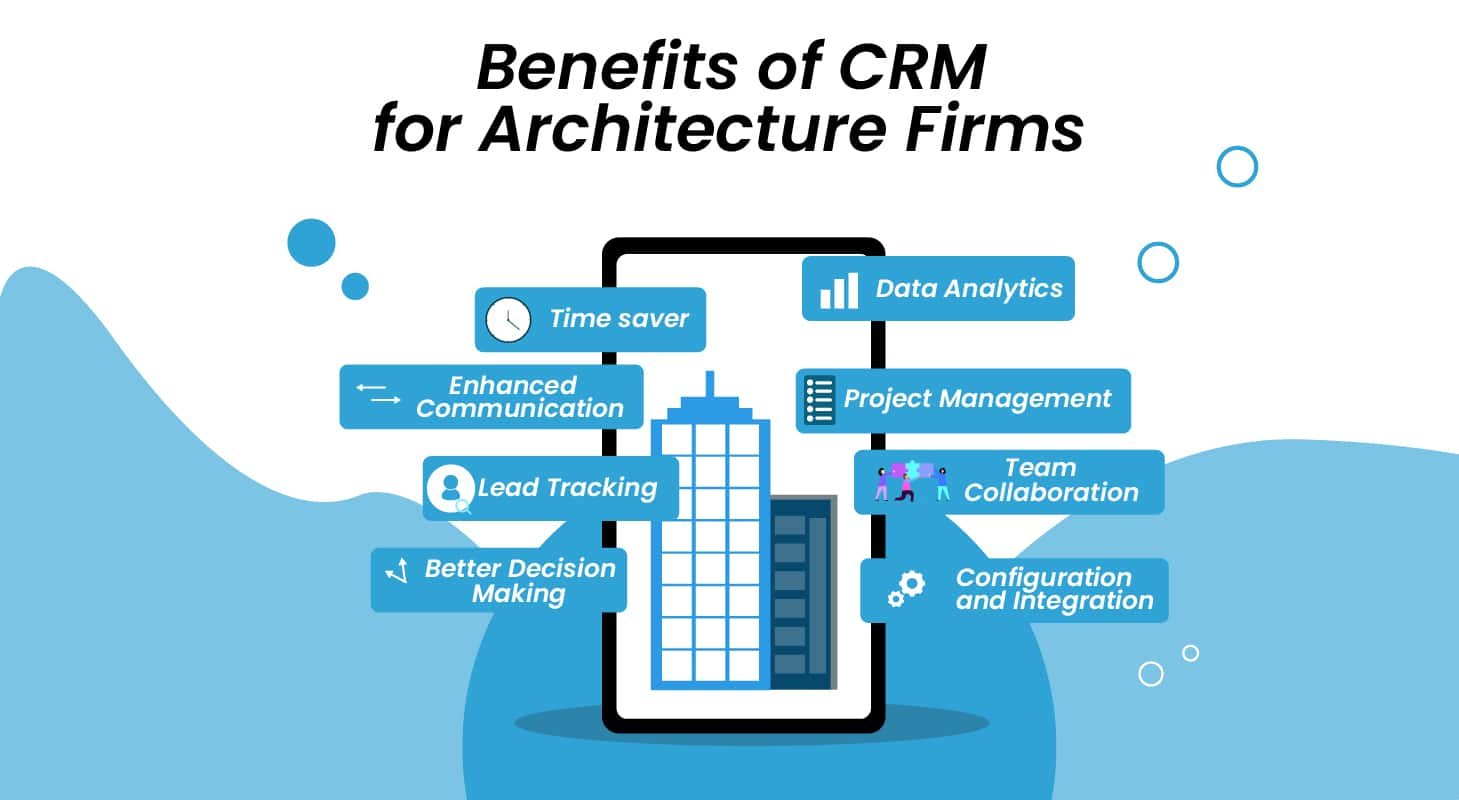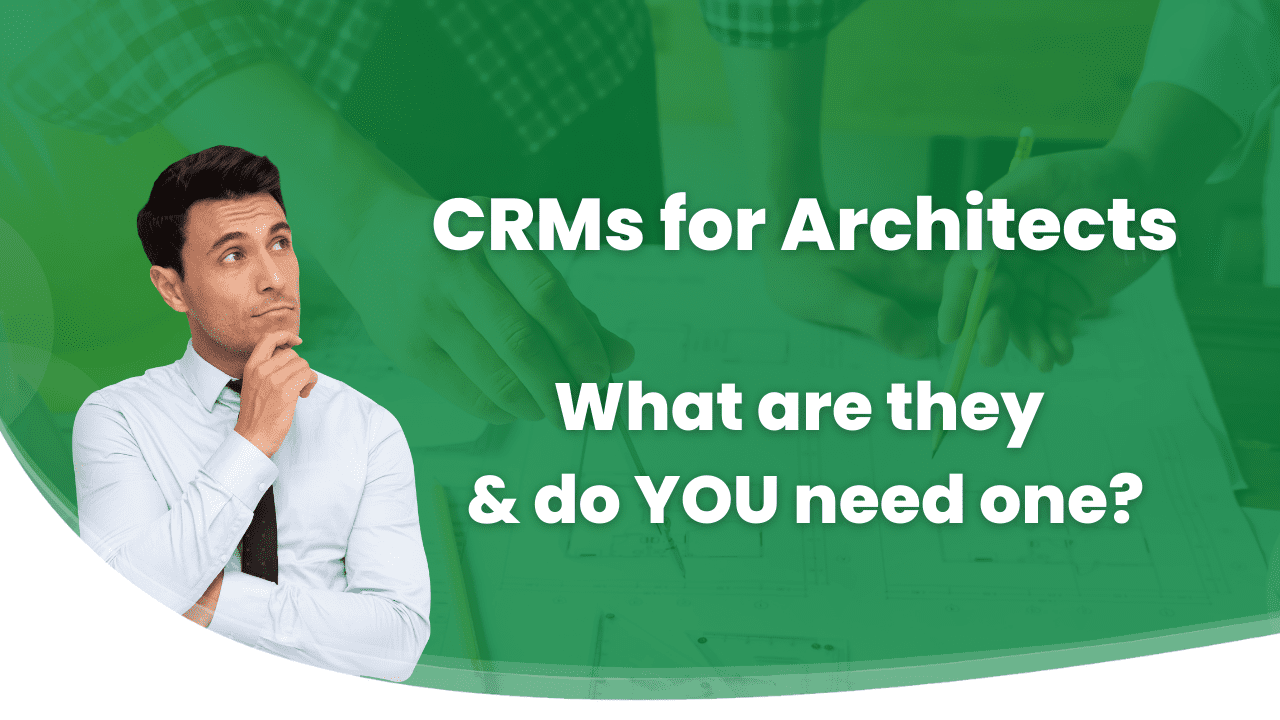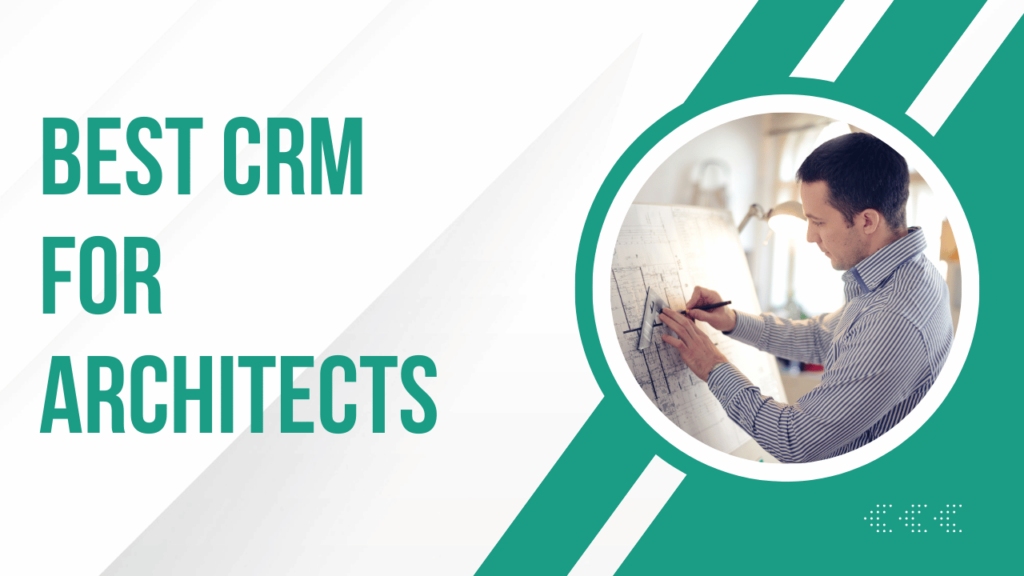At the forefront of every successful architectural firm is the need for the best CRM for architects. This essential tool not only enhances organization but also fosters improved client interactions, ultimately leading to more efficient project management. Dive into the world of CRM tailored specifically for architects and unlock a realm of possibilities.
As architects navigate the complexities of their projects, having a CRM system designed with their unique needs in mind can make all the difference. From customization options to seamless integrations with other tools, the right CRM solution can revolutionize the way architects work.
Overview of CRM for Architects
Customer Relationship Management (CRM) software is essential for architects to manage client relationships, projects, and business operations effectively. CRM systems help architects streamline communication, track project progress, and improve overall productivity. By centralizing client information and project details, architects can enhance collaboration within their firms and deliver exceptional services to clients.
Importance of CRM Software for Architects
CRM software plays a crucial role in helping architects maintain strong relationships with clients, manage project timelines efficiently, and track business opportunities. It enables architects to stay organized, improve client communication, and ultimately drive business growth.
Benefits of CRM Systems for Architectural Firms
CRM systems offer numerous benefits to architectural firms, including improved client retention, streamlined project management, enhanced data security, and increased efficiency in business operations. These tools provide architects with valuable insights into client needs and preferences, allowing them to deliver personalized services and build long-term relationships.
Key Features in CRM Tools for Architects
When selecting a CRM tool, architects should look for features such as project management capabilities, client communication tools, reporting and analytics functionalities, integration options, and customization capabilities. These features can help architects optimize their workflows, track project progress, and deliver exceptional services to clients.
Comparison of CRM Options for Architects
There are several CRM options tailored specifically for architects, including software solutions designed to meet the unique needs of architectural firms. By comparing these options based on features, pricing, scalability, and user reviews, architects can identify the best CRM solution that aligns with their business goals and requirements.
Customization Options in CRM for Architects
Customization is key for architects when it comes to CRM systems, as it allows them to tailor the software to their specific needs and workflows. By customizing CRM tools, architects can enhance project management, client communication, and collaboration within their firms, leading to increased efficiency and productivity.
Importance of Customization for Architects in CRM Systems
Customization in CRM systems enables architects to adapt the software to their unique processes, client preferences, and project requirements. This flexibility allows architects to create personalized workflows, automate repetitive tasks, and improve overall efficiency in managing client relationships and projects.
Examples of Customization in CRM Software for Architects

Architects can customize CRM software by creating custom fields for project details, setting up automated workflows for client communication, integrating third-party apps for enhanced functionality, and configuring reporting tools to track key metrics. These customization options empower architects to optimize their CRM systems for maximum effectiveness and performance.
Impact of Personalized CRM Solutions on Architects’ Workflow
Personalized CRM solutions can significantly impact architects’ workflow by improving communication, project management, and client interactions. By tailoring CRM tools to their specific needs, architects can streamline processes, increase collaboration among team members, and deliver exceptional services that meet client expectations.
Integration Capabilities with Other Tools
Seamless integration with other software tools is essential for architects to ensure a connected ecosystem that enhances project management and client relationships. By integrating CRM systems with common tools used in architecture firms, architects can centralize data, streamline workflows, and improve overall efficiency in managing projects and clients.
Significance of Seamless Integration for Architects
Seamless integration with other tools such as project management software, accounting systems, and design tools is crucial for architects to eliminate data silos, improve data accuracy, and enhance collaboration across different departments. Integrated systems enable architects to access real-time information, automate processes, and make informed decisions that drive business growth.
Common Tools Used in Architecture Firms that Should Integrate with CRM Systems

Architecture firms often use tools like AutoCAD for design, Revit for building information modeling, Adobe Creative Suite for graphics, and project management software like Asana or Trello. Integrating these tools with CRM systems can create a cohesive workflow that centralizes project information, improves communication, and enhances project delivery for architects.
Benefits of Having an Interconnected System for Architects’ Projects and Client Management

Having an interconnected system that integrates CRM software with other tools used in architecture firms can lead to improved project visibility, better client communication, streamlined processes, and enhanced data security. This interconnected approach allows architects to work more efficiently, collaborate seamlessly, and deliver high-quality projects that meet client expectations.
Mobile Accessibility and Collaboration Features
Mobile accessibility and collaboration features are essential for architects using CRM software to stay connected, work remotely, and collaborate effectively on projects. By leveraging mobile CRM solutions and collaboration tools, architects can enhance communication, productivity, and client relationships while working on-the-go.
Importance of Mobile Accessibility for Architects Using CRM Software
Mobile accessibility in CRM software enables architects to access client information, project details, and communication tools from anywhere, at any time. This flexibility allows architects to stay connected with clients, collaborate with team members, and manage projects efficiently, even while working remotely or on-site.
Collaboration Features Essential for Architects Working on Projects, Best crm for architects
Collaboration features such as real-time messaging, file sharing, task assignment, and project timelines are crucial for architects working on projects with team members, clients, and external stakeholders. These features facilitate seamless communication, efficient task management, and effective project collaboration, ultimately leading to successful project delivery and client satisfaction.
Examples of How Mobile CRM Solutions Enhance Architects’ Efficiency
Mobile CRM solutions enhance architects’ efficiency by providing instant access to project data, client information, and communication tools on smartphones and tablets. Architects can update project statuses, communicate with clients, and collaborate with team members on-the-go, leading to improved productivity, faster decision-making, and better project outcomes for architectural firms.
Final Thoughts: Best Crm For Architects
In conclusion, the best CRM for architects serves as a cornerstone for success in the ever-evolving field of architecture. By harnessing the power of tailored CRM tools, architects can streamline their workflow, boost productivity, and elevate client relationships to new heights. Embrace the future of architectural project management with the right CRM at your fingertips.
FAQ Corner
What are the key features architects should look for in a CRM tool?
Architects should prioritize features like project tracking, client contact management, integration capabilities, and mobile accessibility in a CRM tool.
How can architects benefit from personalized CRM solutions?
Personalized CRM solutions can enhance architects’ workflow by allowing them to tailor the software to their specific project management needs, improving efficiency and client communication.
Why is mobile accessibility important for architects using CRM software?
Mobile accessibility ensures that architects can access important project and client information on the go, facilitating real-time updates and communication with team members and clients.
